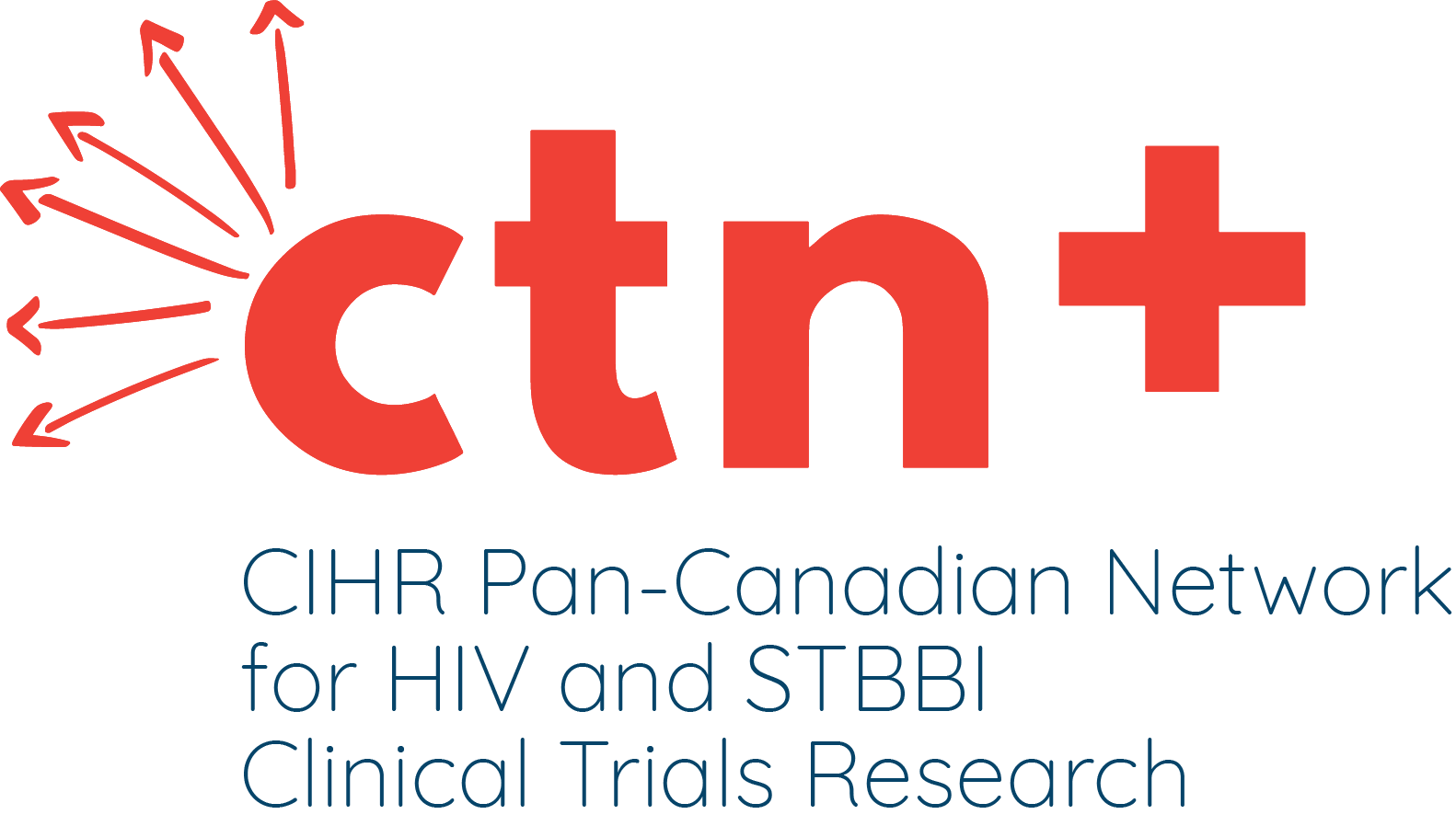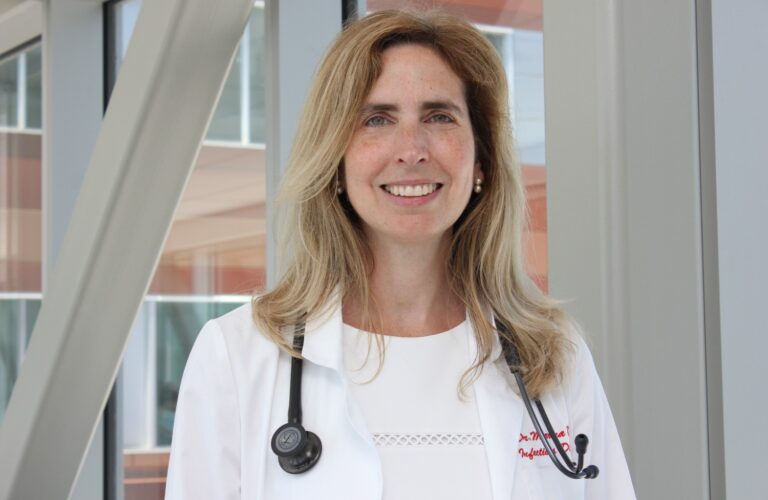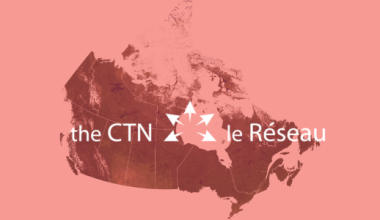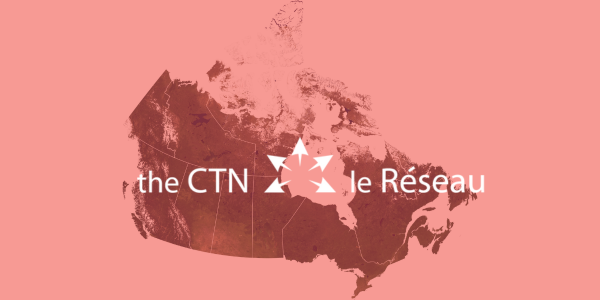Since 1993, the CTN Community Advisory Committee (CAC) has changed the course of HIV research in Canada. At the time, the CAC was unique for bringing people living with HIV to the table to review clinical trial proposals and protocols. Nowadays, the CAC is known for setting the bar for community collaboration in health research.
As the impact and realities of HIV have changed over the years, so too has the membership of the CAC. The committee is made up of a diverse group of people who are broadening the scope of HIV research and care, all while continuing to work towards health equity. Let’s meet four new members who joined the CAC in 2020:
Michael Parsons
 “I think there’s space for multiple world views in HIV research,” says Michael Parsons. As an Elder within the HIV community, Michael has been devoted to expanding methodologies and broadening the scope of HIV research: “I hear a lot of scientists talk about community buy-in. Well you can’t have community buy-in without incorporating the community into your research techniques — it has to be a collective voice that moves research forward.”
“I think there’s space for multiple world views in HIV research,” says Michael Parsons. As an Elder within the HIV community, Michael has been devoted to expanding methodologies and broadening the scope of HIV research: “I hear a lot of scientists talk about community buy-in. Well you can’t have community buy-in without incorporating the community into your research techniques — it has to be a collective voice that moves research forward.”
Michael has worked tirelessly to show researchers that Indigenous methodologies can and should play a central role in HIV research. In particular, he works to incorporate traditional ceremony into study protocols. “Ceremony can influence research, and research can be embedded in ceremony,” he explains. “This is how we can bring research back to life.”
Michael has worked with the Canadian Aboriginal AIDS Network (CAAN) since its inception in the year 2000. He currently heads the 9-Genders Project, which promotes a two-spirit approach to HIV care, whereby the spirit, rather than sex, carries one’s gender identity. “With Indigenous ways, we don’t separate, we bring things together,” explains Michael. “The concept of 9-genders brings all forms of gender, in all its diversity, together under one roof.”
On September 24th, Michael demonstrated this approach through a webinar at HIV2020, where he was joined in ceremony by other two-spirit Elders to discuss the concept of 9-genders. The webinar not only aimed to bring awareness to this concept, but was also intended to promote ceremonial circles as data-generating research activities, which Michael is rolling out to inform his ongoing work with CAAN. As researchers across the globe grapple with the new realities of our teleconnected world, Michael’s approach, and Indigenous methodologies more broadly, may indeed be charting a way forward.
Devan Nambiar
 Devan Nambiar is a veteran of the fight for equity in HIV. Having lived with HIV for over 30 years, been involved in countless advocacy groups, trained organizations on cultural competency, and already served on the CAC twice before, Devan brings a long-term view to his work. But it’s having lived through the early days of HIV that inspires his work to this day: “You know, I hate to be blunt, but I wouldn’t do this work if I hadn’t lived with HIV in the 80’s and seen so many people die around me,” he says. “It just gives a different perspective on what it’s useful to do in life.”
Devan Nambiar is a veteran of the fight for equity in HIV. Having lived with HIV for over 30 years, been involved in countless advocacy groups, trained organizations on cultural competency, and already served on the CAC twice before, Devan brings a long-term view to his work. But it’s having lived through the early days of HIV that inspires his work to this day: “You know, I hate to be blunt, but I wouldn’t do this work if I hadn’t lived with HIV in the 80’s and seen so many people die around me,” he says. “It just gives a different perspective on what it’s useful to do in life.”
Devan now works as an educator on diversity, equity, and inclusion in Toronto, where he’s advised over 500 organizations on sexual and gender minorities (2SLGBTQ+), cultural and clinical competencies, and integrative medicine.
“In a way, I’m very blessed having had that experience, because I can understand someone’s experience if they test positive,” explains Devan. This sense of compassion is what led Devan to establish a medication recycling program in collaboration with Tambaram Hospital in Chennai, India. Beginning in 1998, over the course of five years, Devan helped the hospital secure life-saving anti-retroviral medications through Canadians donating leftover pills.
This will be Devan’s third time serving on the CAC, the last post having ended over 15 years ago. When asked about the changes in clinical research since then, he explains: “There’s just so much more data now. But even with all that data, we’re still seeing certain groups disproportionately affected by the virus. That’s what encouraged me to return to the CAC, to make sure that research serves everyone and that we’re all treated equally.”
Jade Vincent
 Jade Vincent’s journey to the CAC was over 15 years in the making. “I was diagnosed with HIV in 2004,” sheexplained, “but the first time I spoke with another person openly about their diagnosis was in 2019, when I had been living with HIV for 15+ years! From there it all made sense — I realized that I had missed an important connection for many years, that I had a place with my people, and that I could contribute to our collective effort to make things better for us as a group.”
Jade Vincent’s journey to the CAC was over 15 years in the making. “I was diagnosed with HIV in 2004,” sheexplained, “but the first time I spoke with another person openly about their diagnosis was in 2019, when I had been living with HIV for 15+ years! From there it all made sense — I realized that I had missed an important connection for many years, that I had a place with my people, and that I could contribute to our collective effort to make things better for us as a group.”
Since that revelation, Jade has jumped head-on into HIV advocacy. In addition to joining the CAC in early 2020, she has leveraged her background in medical anthropology for a number of HIV-related research projects. She currently serves as a research coordinator for le Portail VIH-sida Québec (pvsq), which is investigating financial insecurity among people living with HIV in Québec, and contributes to COCQ-SIDA and HEADS-UP 2 as a peer-researcher.
Jade is also currently studying for a master’s degree in Public Health at the University of Montreal, where her thesis revolves around the experiences of people living with HIV in a world where U=U (Undetectable = Untransmissible). “Today, with access to good medication, I think that the worst problem with HIV isn’t living with it; it’s all the persistent stigma and ignorance around HIV that makes our lives especially hard,” she says.
Nowadays, Jade’s first-hand experience with HIV-related stigma is what drives her work forward: “I think that stigma is our biggest fight right now. I hope researchers will continue to back us up in this fight, so that one day we get to be treated with the same respect as everyone else.”
Christian Hui (he/they)
 When the CTN connected with Christian Hui to ask about what they hope to achieve while serving on the CAC, the answer was clear: “I hope to support the growing number of poz researchers to fully realize the principle of greater involvement of people living with HIV/AIDS (GIPA) in research.” What Christian failed to mention is that they have already started the journey as a researcher living with HIV, and are walking the talk when it comes to GIPA.
When the CTN connected with Christian Hui to ask about what they hope to achieve while serving on the CAC, the answer was clear: “I hope to support the growing number of poz researchers to fully realize the principle of greater involvement of people living with HIV/AIDS (GIPA) in research.” What Christian failed to mention is that they have already started the journey as a researcher living with HIV, and are walking the talk when it comes to GIPA.
Christian has worked in the HIV and harm reduction sectors over the past decade as a peer research associate, research assistant, knowledge user, and research coordinator on a number of community-based studies. Through this research work, and as someone with lived experience, Christian gained an intimate understanding of the principle of ‘nothing about us, without us.’ These experiences inspired Christian to pursue a PhD in Policy Studies at Toronto Metropolitan University. “I’ve learned to recognize the importance of co-learning and co-creating knowledge with community members,” they explain. As a settler researcher, Christian is hopeful that renewed focus on equity in HIV research will help improve the health outcomes for members of historically oppressed communities, including Black, Indigenous, People of Colour (BIPOC), 2SLGBTIQ+, people who use drugs, newcomer migrants, sex workers, and people who are or have been incarcerated.
Above all, Christian’s involvement in research has changed their own personal trajectory: “Having lived with HIV for 17 years, I can say HIV has been a positive companion in my life — it has given me strength and resilience to challenge stigma and discrimination, opportunities to engage in global grassroots movements such as U=U, and a strong conviction to ensure that people living with HIV are not tokenized, but instead supported in research.” As a member of the CAC, Christian is sure to continue developing research by, for, and in support of those living with HIV, while building connections and coalitions with all members of the HIV-positive community.






